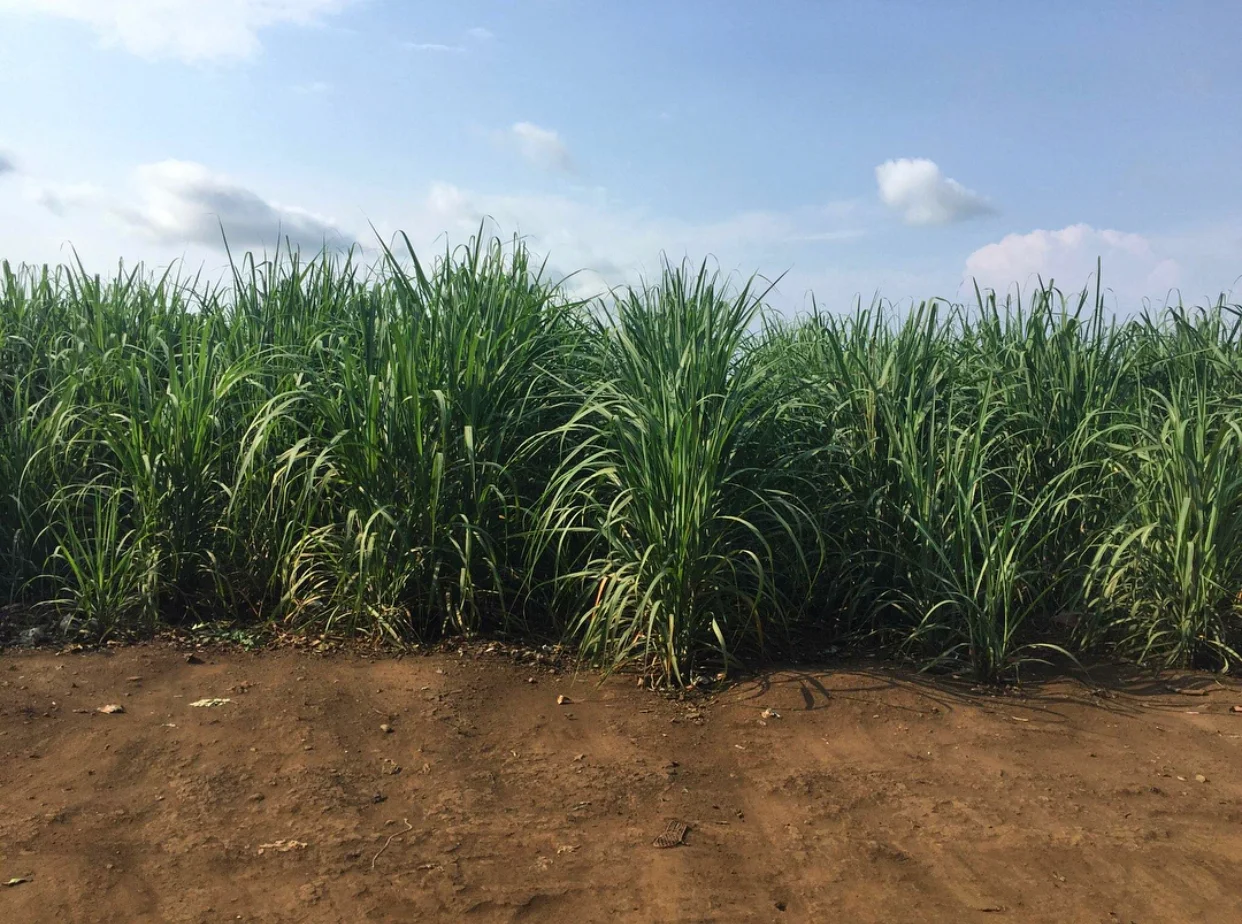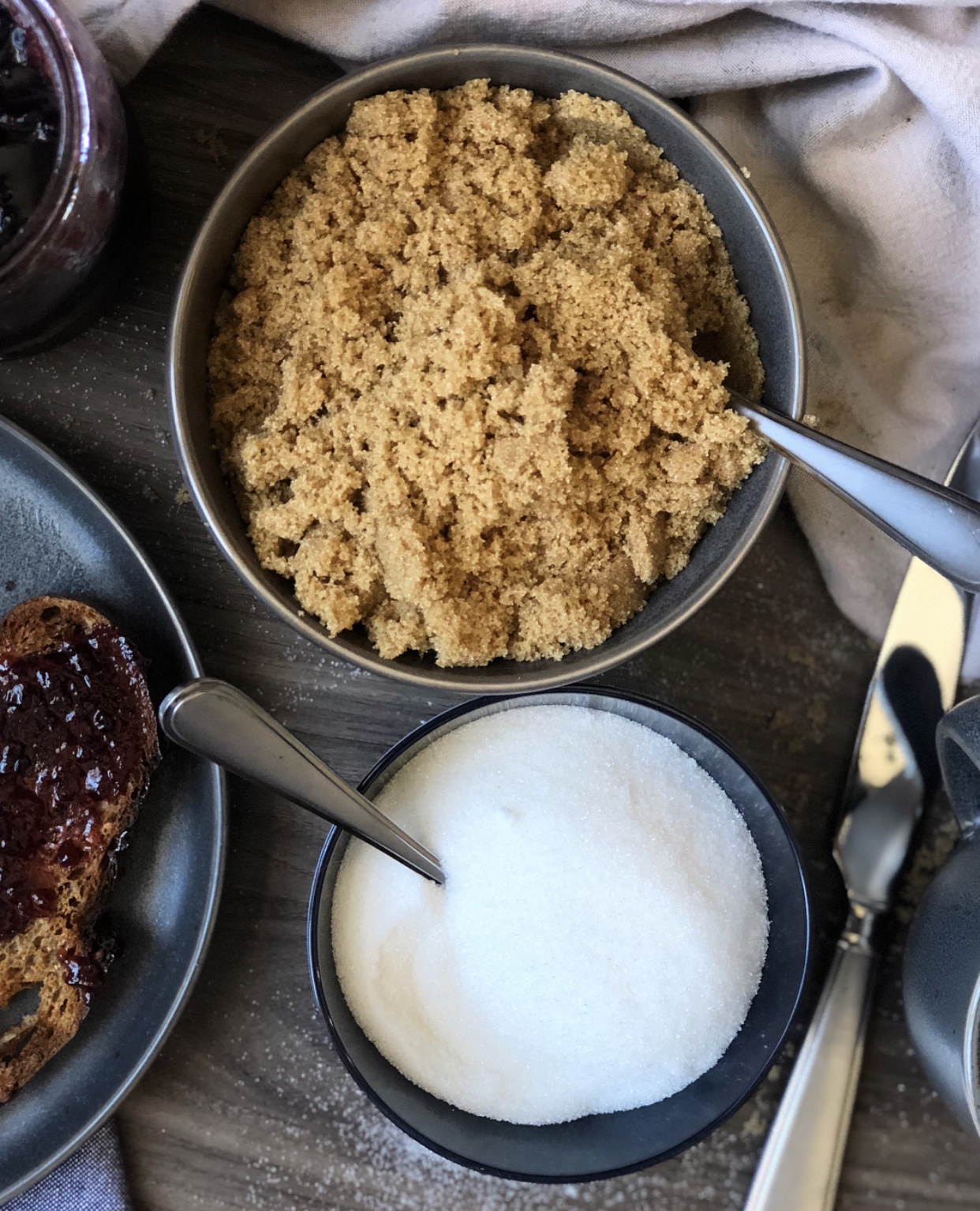Sustainability Profile: Cane Sugars
Sugarcane in Nicaragua photographed by my sister
Sugar, sugar
Cane sugar is probably the type of sugar you know best. Most products labeled as “sugar” in the grocery store (think “granulated sugar,” “brown sugar” and “powdered sugar”) are some version of cane sugar.
Yes I know, added sugar is basically the antonym of health, but life without sugar would just be boring! In this post, I’ll tell you how to make life a little sweeter without wrecking our beautiful planet.
What’s the deal with cane sugars?
You’ve probably watched your granny use some version of cane sugar in vanilla cake, another in molasses cookies and another in icing, but at the end of the day all these sugars come from sugarcane.
Because cane sugars all come from the same plant, they’re all associated with the same sustainability issues like habitat loss, biodiversity loss and soil erosion.
The stuff in sugarcane that makes it sweet is sucrose. To get sucrose, manufacturers need to process sugar cane, which releases GHGs and a bunch of nasty chemicals.
This is not only contributing to climate change but also it's polluting the environment in India and elsewhere. Because of these issues, it’s best (but still not perfect…) to buy Fair Trade and organic for all cane sugars.
White Sugars
Your classic “refined” white sugars are processed from a combination of sugarcane and sugar beets. I’ve searched and searched for a Fair Trade version of this combo and at this point I’m convinced it doesn’t exist.
However, if you buy sugar that’s made from only sugarcane (probs labeled as evaporated cane juice), it’s really easy to find Fair Trade and organic versions. That Fair Trade label means that the workers and the environment were treated well during production.
Powdered sugar (aka icing sugar, aka confectioners sugar) is the same stuff as regular white sugar, but has been ground up a little more. If you’re really dedicated to being sustainable, you can make this yourself by just grinding cane sugar in a mortar and pestle.
I realize not everyone has the time or the biceps for that, so buying a Fair Trade powdered sugar is definitely the way to go. Yes, this will be more expensive, but for the good of your health you probably shouldn’t be buying sugar that often anyway.
bottom line: fair trade organic e'ry day.
Brown sugars
Depending on how processed your brown sugar is, it could be better or worse for the planet than white granulated sugar.
The stuff labeled light or dark brown sugar in the stores is made from adding molasses back to granulated sugar that has already had molasses removed during processing. Cray cray, right?
Adding molasses after it’s been removed makes the sugar more uniform but also requires more processing, which releases lots of GHGs.
Some brown sugars, like Turbinado, Demerara and Muscovado, are less processed brown sugars that simply contain more or less of the molasses that naturally occurs in cane sugars.
These sugars will all have slightly different moisture levels and consistencies than refined brown sugar, so you might need to experiment a bit to replace the brown sugar in your fav oatmeal raisin cookies.
You can find all of these brown sugars in organic and Fair Trade varieties so rejoice! Again, this will be more expensive, but your doctor would probs tell you not to buy this stuff very often anyway.
Healthwise, brown sugars have slightly more minerals than white sugars, but this is such a small difference that it doesn’t really matter.
bottom line: consider less refined versions, but either way organic and fair trade or bust.


